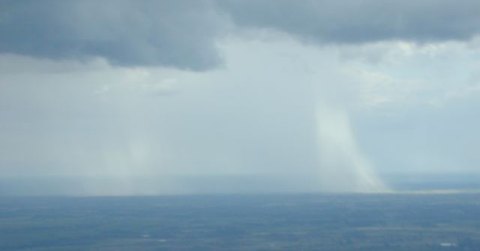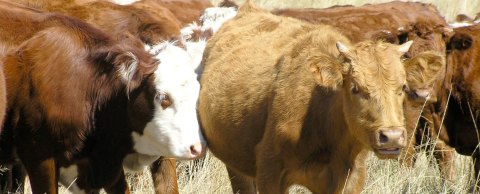Home | About CCW | Contact Us | Climate change Meaning | Causes | Solutions | Emissions | Carbon trading
Global climate change
Global climate change is a term applied to the whole planet as though there were a global climate. However, it is not a singular phenomenon.
There is a different climate in the Antarctic to that in France to that in Southern Africa.
Indeed, the climate in the southern cape region of South Africa with its warm summers and cool wet winters that is very different to the climate of the interior where the summers are warm and wet, and the winters are bone dry.
There is just a few hundred kilometers that separate these climate zones.
The IPCC definition of climate is:
Climate in a narrow sense is usually defined as the "average weather," or more rigorously, as the statistical description in terms of the mean and variability of relevant quantities over a period of time ranging from months to thousands or millions of years. The classical period is 30 years, as defined by the World Meteorological Organization. These quantities are most often surface variables such as temperature, precipitation, and wind. Climate in a wider sense is the state, including a statistical description, of the climate system.
Our planet has many recognizable climates.

So why talk of global climate change?
Part of the answer is that the climate change concept is a global one. Both the causes and the effects apply everywhere. The expectation is that all the individual climates will be affected by change.
Part of the answer is that climate change is a challenge to human society everywhere. The intent is that it be perceived as a global difficulty even though the consequences of change are more acute in some places than others. And even though the effects are always felt locally.
Part of the answer is the logic flow that says solutions for global warming come from a concerted global effort. The idea is that there must be some collective action.
For the time being this global effort appears as Kyoto protocol under the UNFCCC with 192 states as signatories, more than 95% of the countries in the world.
In other words, almost everyone.

However, the debate over what to do with global climate change has been long and fraught.
It is a conundrum similar to the one that occurs on the plains of Africa.
Each year huge herds of wildebeest trek hundreds of kilometers as they follow the rain that brings lush growth to the grasses of the Serengeti. They must all cross the Mara River near the border between Tanzania and Kenya, only waiting in the water are crocodiles that have grown massive on the passing feast. When a group arrives at a crossing point, the leading animals, usually males, sense the danger and hesitate. Animals back up behind them. There is a greater risk to the first to cross, much lower to those that follow in the herd when they all cross at once and there are hundreds of gangly grazers in the water.
Even wildebeest prefer the one in hundreds risk over that of being the first.
Actions on global climate change are similar.
Countries pledge to reduce emissions (to cross the river) only no-one wants to be the first as there are significant economic risks to the first movers. Only when everyone takes action are the economic risks reduced.
So we see, most conspicuously at the annual UNFCCC conference of the parties, the backing up and jostling to avoid the consequences of being the first to take serious action.
A consequence is sluggish collective response. As yet the whole herd has yet to take to the water.

What we could do?
Here are some of the things that we could do to deal with the global consequences of climate change:
Emission reduction | Emissions trading | Carbon sinks | Biosequestration | Adaptation | Climate change legislation
Some regional climate change issues
Climate change Africa | India climate

Back to top of Global climate change | Return to What is climate change? | Back to Climate change wisdom home page
Recent Articles
-
Reducing emissions while looking for solutions...
Nov 01, 15 04:46 PM
I've seen a lot of post's online for ideas on reducing emissions. The one suggestion I have not seen, is the most obvious. There should be a government -
Climate change evidence
Mar 24, 15 06:22 AM
Real climate change evidence has to demonstrate a change in climate. An extra sunny day or a severe storm or a flood is not enough. -
The climate change effect
Feb 19, 15 03:08 AM
What will be the climate change effect? There isn't one, there are many. Perhaps too many for us to understand.



New! Comments
Have your say about what you just read! Leave me a comment in the box below.